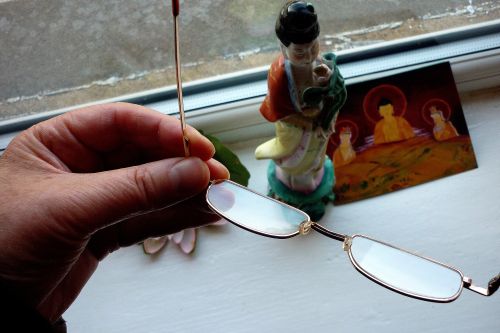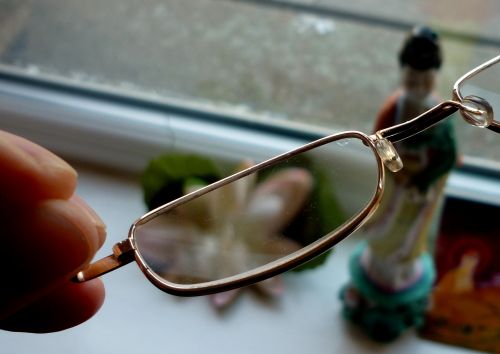Here is a video of Aung San Suu Kyi being interviewed on TV. Towards the end of the interview, having been pressed for an answer to how she dealt with leaving her children, she explains that she is Buddhist and makes the point several times about being responsible for ones actions and not to wallow in regrets which get one nowhere. Quite so.
Thanks to Angie for the link to this interview. Much appreciated.
Monthly Archives: June 2012
Compare – Or Contrast

Nine Standards Rigg
Yesterday
in the evening
with blue sky
sunshine
AND strength.Ah! The climb
The view
from the top –
on the way down
From the Nine Standards Rigg
Congratulating myself on this evening expedition a woman I know strode up towards me. I HAVE to run down she said not even breathless, So I will pass you. Bye! There is always the opportunity to compare oneself (unfavorably) with somebody else. But it’s not necessary to take up the opportunity!
I Can See Clearly Now!

Sometimes we see the bigger picture

and sometimes it’s just the glasses on the end of our nose!
This morning as I reached for my reading glasses I caught sight of the smears on the lenses. Usually I smooch the glass clean with a bit of my robe fabric, not taking the time to do a proper job. But today I went and washed my glasses with shower jell, which was to hand, and hey presto I can see clearly now!
But seeing clearly is a matter of perspective. Sometimes taking in the bigger picture and sometimes zoomed in close. What’s in focus? Objects, over there and people over there are an obvious focus point. But what if, instead of gazing exclusively at objects, one takes in the space around. Negative space as it is termed. Not only around objects but between the object and ones own body? And between oneself and other selves. Somebody said the other day that it is the spaces between that unite not create division or distance.
Questioning Positive Thinking
Behind all of the most popular modern approaches to happiness and success is the simple philosophy of focusing on things going right. But ever since the first philosophers of ancient Greece and Rome, a dissenting perspective has proposed the opposite: that it’s our relentless effort to feel happy, or to achieve certain goals, that is precisely what makes us miserable and sabotages our plans. And that it is our constant quest to eliminate or to ignore the negative – insecurity, uncertainty, failure, sadness – that causes us to feel so insecure, anxious, uncertain or unhappy in the first place.
Extracted from The Antidote: Happiness For People Who Can’t Stand Positive Thinking, by Oliver Burkeman. See The Guardian article Happiness is a glass half empty.
The above article was linked in a comment recently. I’ve found the message so compelling and true I’ve thus elevated it to the front page.
And if that wasn’t enough about questioning happiness I came across this video animation titled Smile or Die which takes a critical look at positive thinking! The method of conveying the argument using words and images on a white board suits me down to the ground.
As I see it the underlying issue in both the article and the video is a common mistaken view about the use of the mind. But this is a tricky subject when you get right down to it. Magical thinking and the like is one thing however there is the power of the good which benefits beings. We would call that spiritual merit.
I’m deeply sorry if questioning positive thinking has left you disturbed. My way of seeing through this positive/negative is to re-affirm the wisdom of looking up which is too often confused with thinking positively. Looking up is a direction which has no goal.
Right Before One’s Eyes

That which is manifesting

right before one’s eyes (genjo)

is the absolute reality. (koan)
Genjo Koan is the first chapter of Great Master Dogen’s Shobogenzo. Scholars regard the Genjo Koan as foundational to Dogen’s religious understanding, with the rest of the Shobogenzo being a development of the teaching embedded in Genjo Koan.
Here are the opening four lines of Genjo Koan. But first a reminder from me.
Read.
Be still.
Be very still.
And watch your mind as you read.
And then let it go!
I’ll say no more.
When all things are just what they are [apart from discrimination], illusion and enlightenment exist, religious practice exists, birth exists, death exists, Buddhas exist, and ordinary beings exist. When the myriad things are without self, there is no delusion, no enlightenment, no Buddhas, no ordinary beings, no birth, no extinction. Since the Buddha Way from the beginning transcends fullness and deficiency, there is birth and extinction, delusion and enlightenment, beings and Buddhas. However, though this is the way it is, it is only this: flowers scatter in our longings, and weeds spring up in our loathing.
Francis H. Cook, Sounds of Valley Steams
I am no Dogen scholar. A book fell into my hands this morning and opened at Genjo Koan. I read it, I read it again. And then came back to it again this evening. All I can say is, This is profound. And simple.
Better get to bed now. Please don’t lose sleep over this!